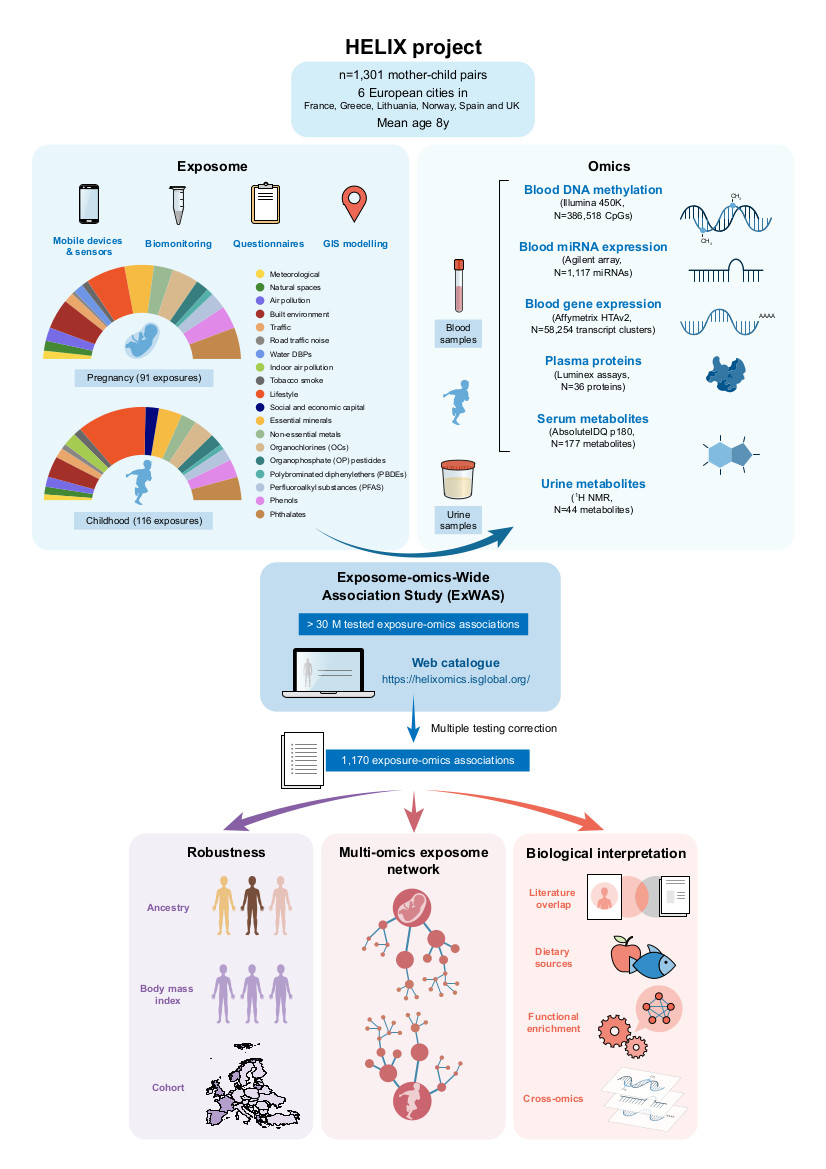Exposome-omics-Wide Association Study (ExWAS)
This web application can be used to query and download findings from the Exposome-omics-Wide Association Study (ExWAS) conducted in the Human Early Life Exposome (HELIX) project, including 1,301 school-age children from 6 European cohorts in the UK, France, Spain, Lithuania, Norway and Greece (https://www.projecthelix.eu"). This is a unique and comprehensive resource of molecular signatures related to common environmental exposures during vulnerable early life stages. Maitre, L., Bustamante, M., Hernandez-Ferrer, C. et al. Mutil-omics signatures of the human early life exposome. Nat Commun 13, 7024 (2022).https://doi.org/10.1038/s41467-022-34422-2
Scroll down to download other HELIX results.



